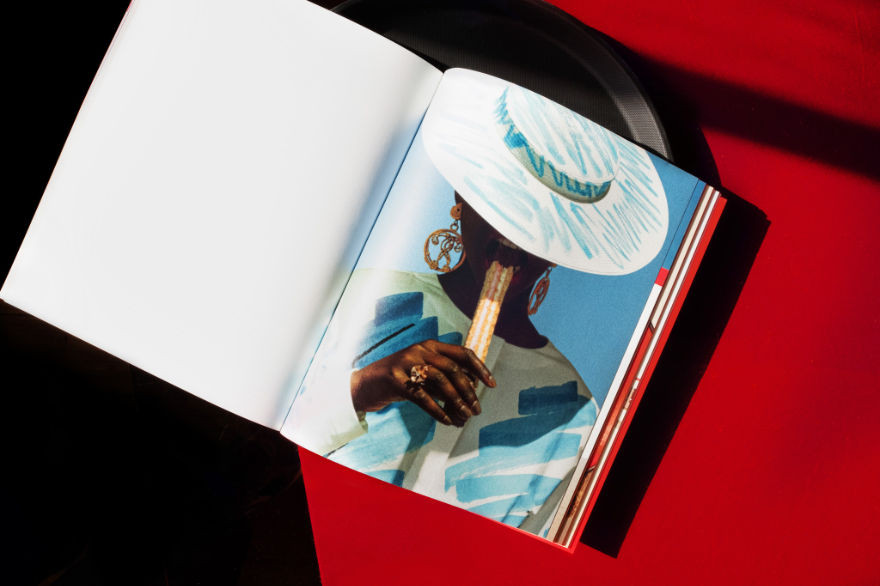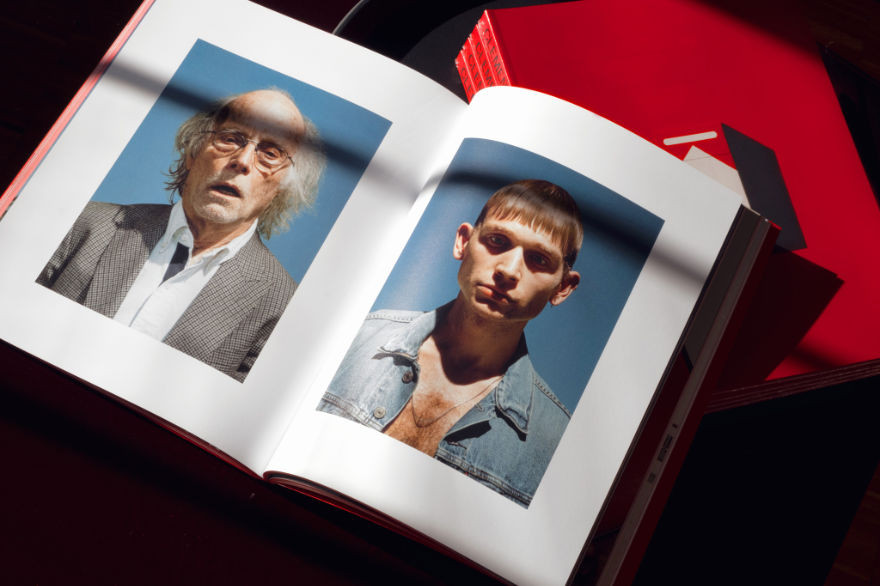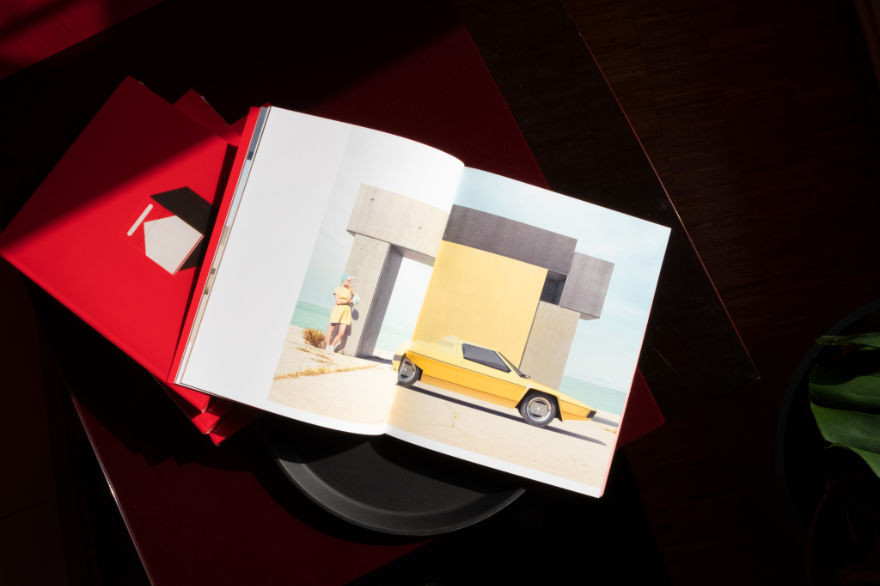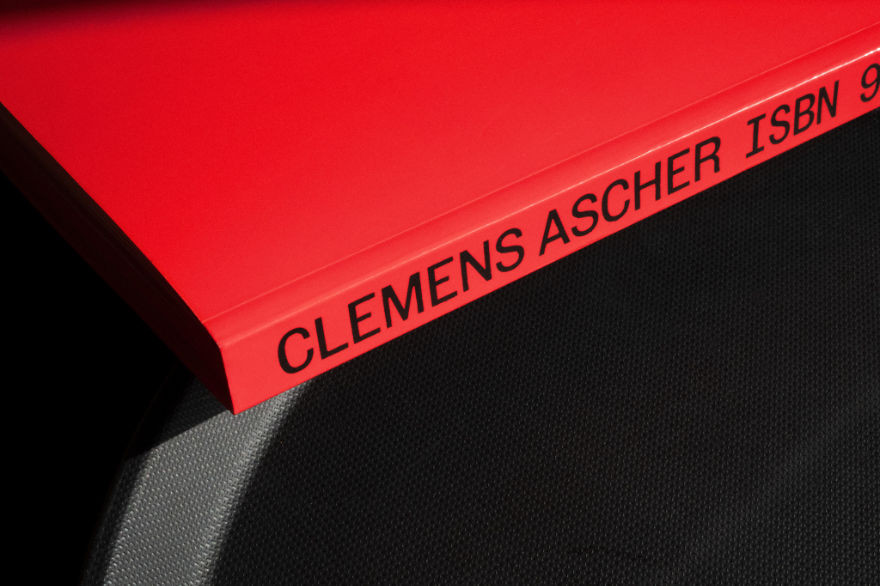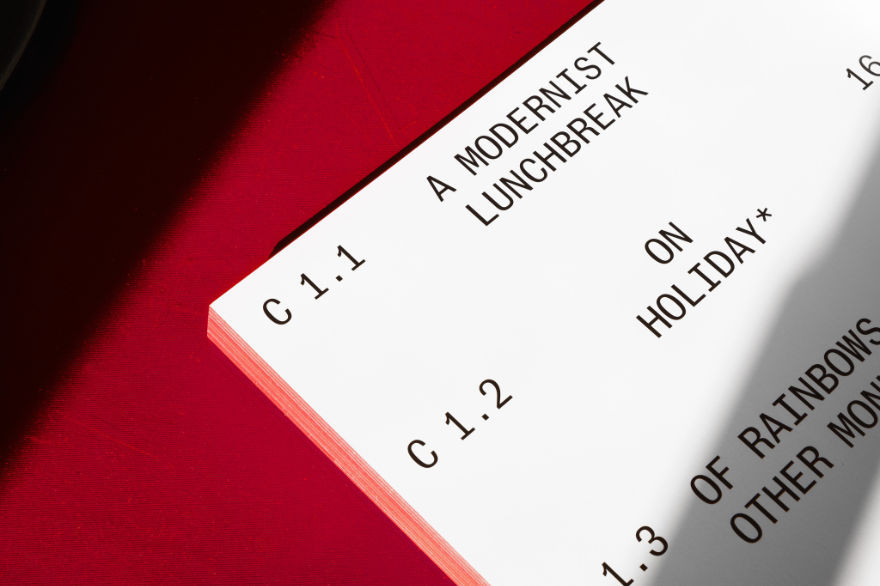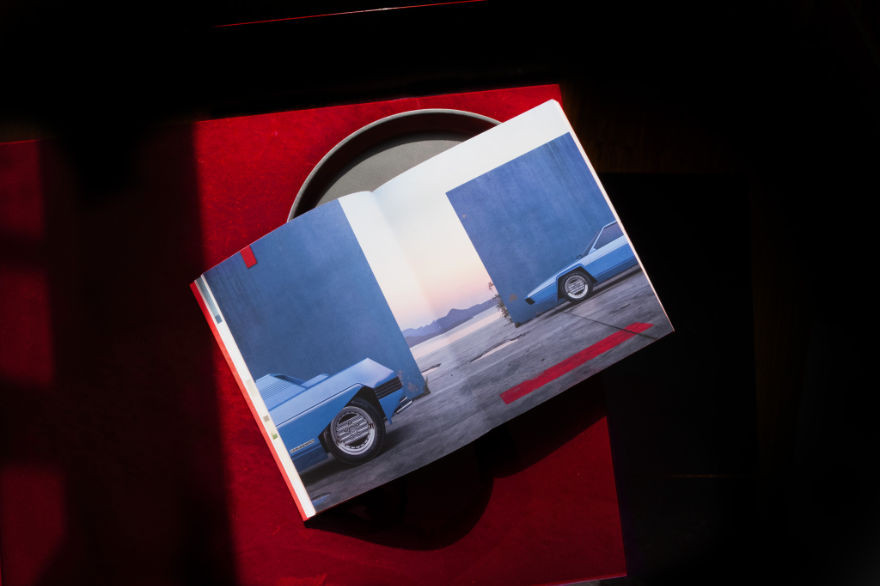Book Review
There is no Release from the Brain Police by Clemens Ascher
5 min read
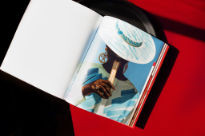
Visually pleasing on the surface, but strangely unsettling at closer inspection – this is the prevailing sentiment in the intriguing artistic universe of Austrian photographer Clemens Ascher, whose work has been showcased in Garage, Numéro, and The Guardian. “There is no Release from the Brain Police”, published by Hatje Cantz, brings together several of Ascher’s captivating series, all distinctly conceptually connected, on 160 pages.
It’s a surreal, fictional but photorealistic world where advertising aesthetics dominate and humans seem to struggle with loneliness and isolation. Colorful, minimalist, sleek, but disturbing, they address timely issues related to societal control and alienation. A beautiful woman gulps down a burger while cows are being transported into a meat factory in the background, a man snaps a picture of his family posing in front of a missile, and nature has largely been replaced by grimly grey concrete. We’ve spoken to Ascher about the perturbing worlds he so eloquently creates, the (intentional) inherent contradictions in his practice, and of course his new book.
How did you find your way to photography?
My parents were both photographers, so I grew up with the medium. I would flip through fashion magazines, my parents’ subscription of GEO ( a German version of National Geographic), and their photography books. Little by little the desire to become a photographer formed in me as well. It fascinated me. After high school, I decided to attend the Miami Ad School in Hamburg, where photography was part of the curriculum. It’s hard to make it as a photographer, and in the back of my head I thought I could always work for an ad agency instead. But during my studies I quickly realized that I really had to go for photography or I’d regret it for the rest of my life.
Looks like it all worked out well! What did your path look like after graduation?
I immediately went freelance, being able to build on the connections I had made during my studies. I knew the working processes, how to create a portfolio, what an art buyer does… At the same time, I had always been very interested in fine art photography. Inspirations were the Becher School, New Objectivity, and American advertising photography. I’ve always had a thing for staged images, and used my collage technique early on.
What drew you to that approach?
I like that you can meticulously construct an image without needing immense budgets. I don’t have to fly around the world to shoot in exotic locations. It enables me to play with superelevated perspectives, I can let my imagination run free, and there are so many formal composition possibilities. Plus, I can work very trenchant in terms of content. I’m constantly developing the technique further, for example trying to bring it closer to painting.
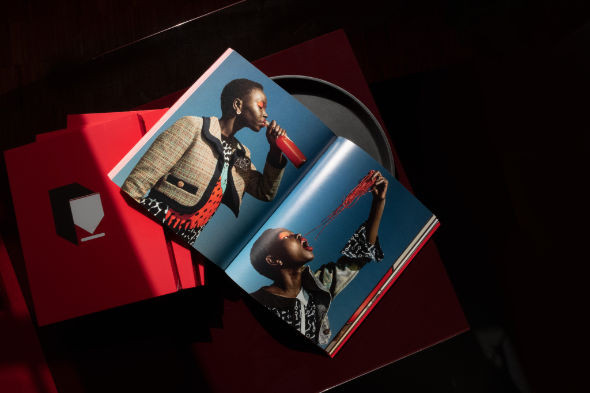
What does your working process look like, from idea to final image?
I always begin with a hand drawing, an idea, and then I start to pragmatically transpose it. Every element is created separately and then I assemble them into an image. Everything is photographed, except a bit of CGI sometimes. The people I photograph in a studio. For the rest, I search my archive or just drive around until I find what I need. Just recently I was on the road in Piedmont for a new project on idealized landscapes. Every surface area is a photo – the wall, the floor, the sky… It’s complicated to put it all together. The light has to be just right, the perspectives… It’s exciting, because you never know in advance what will work. I generally need half a year to finish one series.
How much artistic freedom do you have when doing fashion editorials for example?
Yes I usually have a lot of freedom because most of the stories I make are based on my personal work and are often set in the same »world«. They are mostly rather cooperations than commissions.
I feel there’s a bit of a paradox in your work: you‘re part of the advertising world, but at the same time you criticize it…
Yes. I satisfy the demand, but I simultaneously question it. The two parts belong together. I find this whole topic of societal control via advertising and marketing extremely interesting. It’s linked to how society functions. I pick out particular aspects, such as »work«, a subject I am conceptually tackling at the moment. I examine a fictional world, and symbolically illustrate something, as clearly as possible, reduced to its essentials and filled with ironic exaggerations. Broken perspectives and proportions create a peculiar atmosphere.
Do you have a concrete message for the viewer?
No. I want it to be as equivocal as possible. My goal is to make people think about certain topics, but not in a short-term political sense.
Tell me more about the book you published. What is its ambition? Can you elaborate a bit on the cover choice?
The cover features one of my works, clearly based on a famous, widely recognizable cigarette brand stripped down to its essentials. It’s an important work of mine, showing how it’s possible to communicate solely through colors and design. With the barcode mirrored on the rear side of the book, it itself almost becomes a pack, a box, the ultimate product. It embodies a certain ambiguity. The book is not about my work, but part of it, a work in its own right. That’s also the reason why I decided to not include a text about my practice. The title speaks for itself.
Book design by Studio Es

Book Review & Interview
OLIVIA MALONE
»Tonal«, the debut book of American photographer Olivia Malone, is a mesmerizing study of color that celebrates the female body. Here, she talks about the intriguing project, pandemic lessons and why she considers herself old school.
READ MORE
Interview
Mathieu Rainaud
A conversation with the Paris photographer about his love for analogue photography, what makes a good model, and his ever-growing camera collection.
READ MORE

